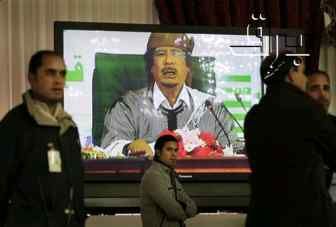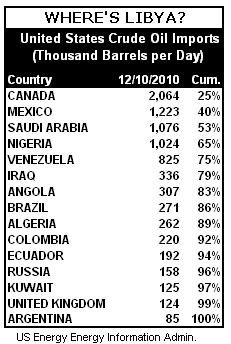Pages: << 1 ... 936 937 938 939 940 941 942 943 944 945 946 ... 1276 >>
Bradley Manning Is Punished for Seeking a More Perfect Union, He’s Accused of Telling the Truth in a Time of Lies
By Kevin Zeese
Reports that Bradley Manning is being held nude every night at the Quantico Brig, then forced to stand naked in the hallway while he waits for his clothes, shows the inconsistency of the treatment of Manning with basic American values of due process, fair trial and human dignity.
Here is how his lawyer David Coombs describes his treatment:
“The Brig has stripped PFC Manning of all of his clothing for the past three nights, and they intend to continue this practice indefinitely. Each night, Brig guards force PFC Manning to relinquish all of his clothing. He then lies in a cold jail cell naked until the following morning, when he is required to endure the humiliation of standing naked at attention for the morning roll call. According to Marine spokesperson, First Lieutenant Brian Villiard, the decision to strip him naked every night is for PFC Manning's own protection. Villiard stated that it would be ‘inappropriate’ to explain what prompted these actions ‘because to discuss the details would be a violation of PFC Manning's privacy.’”
Do Ideas Matter in Economic Policy, or Just Special Interests?
Ian Fletcher

It’s a depressing thought, familiar to everyone who has ever argued with anyone else about economics: do ideas about what’s true and false, right and wrong, in economics even matter for policy-making in Washington? Or is everything just sewn up by the power of special interests before anyone even starts to think?
To take one currently important example, some people believe that free-trade economics is irrelevant, and that free trade is American policy simply because big corporations and other vested interests have the political muscle to impose it.
I actually believe this is false, which gives me hope for this country.
For a start, without economics, vested interests can’t tell whether free trade benefits them or not, just as a company can’t know whether or not it is profitable without resort to accounting principles. Vested interests can indeed see money piling up in their bank accounts under free trade. But is this more or less money than what they would have gotten without free trade? Without economics, they can’t tell.
Obama's Lawless Authorization of Military Commissions Injustice
by Stephen Lendman
On March 7, New York Times writers Scott Shane and Mark Landler headlined, "Obama Clears Way for Guantanamo Trials," saying:
By Executive Order (EO), Obama authorized their use "with revamped procedures but implicitly admitt(ed) the failure of his pledge to close the prison camp."
Since taking office, Obama broke every important pledge he made with regard to:
State Terror Put to the Ultimate Test: Qaddafi’s War on Libya
By Numerian posted by Michael Collins

The extraordinary brutality employed by the Qaddafi regime against its own people has few modern precedents. Dictators tend to reserve their use of state terror for political or sectarian enemies. Saddam Hussein attacked those segments of Iraqi society not content to submit to a government reserved exclusively for Sunni Arabs, and Saddam’s Ba’athist neighbor Hafez al-Assad killed up to 20,000 members of the Syrian arm of the Moslem Brotherhood when they threatened his rule. (Image)
Perhaps the only equivalent instances occurred in Cambodia under the psychotic dictatorship of the Khmer Rouge, and in China during the Tiananmen Massacre. In both cases, the oppression was identified more with the ruling party than with a dictator; China’s government was in fact leaderless following the sudden death of Hu Yaobang, which precipitated the Tiananmen protests. Libya, on the other hand, has been under the unforgiving dictatorship of Muhammar Qaddafi and his family since 1969.
Wisconsin Democrats Plan Capitulation
by Stephen Lendman
Three weeks and counting since Wisconsin public workers began heroically protesting for rights too important to lose, including collective bargaining without which all others are threatened.
Daily, many thousands braved cold and snow - marching, demonstrating, and sleeping over, sacrificing personal comforts to keep struggling for justice. Teachers, police, firefighters, nurses, maintenance workers, and other public employees were joined by union and nonunion private sector ones, along with doctors, lawyers, other professionals, and thousands of college and high school students from across Wisconsin and other states.
Libya, Gas Prices, and the Big Payday at Your Expense
Another Triumph for The Money Party
Michael Collins

The average price for a gallon of gas rose 30% from $2.69 in July 2010 to $3.49 as of March 6. Most of that 30% has come in just the last few days.
We're about to embark on another period of let the markets take care of it. The Money Party manipulators are again jerking citizens around in the old bottom-up wealth redistribution program. Their imagineers are writing the storyline right now.
The conflict in Libya is causing the spike in oil prices over the past ten days or so according to the media script. Take a look at the chart to the right. Can you find Libya among the top fifteen nations supplying the United States with crude oil?
Why the Current Panic Over Gas Prices?
The general explanation points to the crisis in Libya as the proximate cause. The anti Gaddafi regime revolution began in earnest on February 17. But if the Libyan revolution were the cause, we'd have to attribute a 50% drop in a 2% share of the world's oil supply as the cause of the panic. We would also have to attribute the increase in US gas prices to a nation that doesn't impact the US crude oil supply and, as a result, should not impact the price of gas here..
For International Women's Day, the true recipe for equality
Mary Shaw

March 8 is International Women's Day (IWD), a day celebrated worldwide to mark the economic, political, and social achievements of women. And, while women's rights have advanced considerably in a world of still mostly patriarchal cultures, we nevertheless have a long way to go to achieve true equality.
This year's IWD theme, as designated by the United Nations, is: Equal access to education, training, and science and technology: Pathway to decent work for women
I completely agree that access to those resources is necessary for women to progress in the workplace. However, there are other, more basic, considerations that must not be overlooked: Access to sex education and family planning services. After all, even today in the modern industrialized West, many girls and young women still find themselves having to drop out of high school or college due to pregnancy. And this sets them on a potential course to lifelong underachievement. Most pregnant teenagers do not share Bristol Palin's socio-economic privileges, and cannot feed their families by dancing with the stars.
The Social Snobbery of Free Trade
Ian Fletcher
Skepticism about free trade is often stigmatized with ad hominem attacks. These mostly come down to variations on the following:
-
“Protectionists are dummies, losers, incompetents, hippies, rednecks, dinosaurs, closet socialists, or crypto-fascists.”
Thomas Friedman’s version in The World is Flat (the Das Kapital of Globalism) runs thus:
-
Let’s face it: Republican cultural conservatives have much more in common with the steelworkers of Youngstown, Ohio, the farmers of rural China, and the mullahs of central Saudi Arabia, who would also like more walls, than they do with investment bankers on Wall Street or service workers linked to the global economy in Palo Alto, who have been enriched by the flattening of the world.
U.S. Human Rights Policy is Self-serving and Duplicitous: George Katsiaficas
Interview by Kourosh Ziabari

George Katsiaficas is a renowned university professor, sociologist, author and activist. He is a visiting American Professor of Humanities and Sociology at Chonnam National University, Gwangju, South Korea where he teaches and does research on the 1980s and 1990s East Asian uprisings.
Katsiaficas has a Ph.D. of sociology from the University of California, San Diego. Since 1990, he has taught sociology at the Wentworth Institute of Technology's Department of Humanities and Social Sciences. During the period between 2006 and 2008, he was an Associate in Research at the Harvard University and Korea Institute.
He specializes in social movements, Asian politics, the U.S. foreign policy, comparative and historical studies and has written numerous books in these fields.
In 2003, he won the American Political Science Association's Special Award for Outstanding Service and in 2008, received the Fulbright Senior Scholar Research Fellowship.
America's War on Libya
by Stephen Lendman
Since WW II alone, America waged direct and proxy wars against Korea, Southeast Asia, Central and South American countries, African ones, Iraq, Afghanistan, Palestine, and now Egypt and Libya. One down, one to go, besides dozens of attempted and successful coups, as well as numerous other interventions to control world markets, resources and people. Imperial America doesn't sleep. It plots, deciding where next to strike.
Despite popular passion for democratic change, uprisings in Egypt and Libya were externally orchestrated, funded and armed by Washington to replace one despot with another. Democracy won't be tolerated. It's never been at home.
<< 1 ... 936 937 938 939 940 941 942 943 944 945 946 ... 1276 >>




